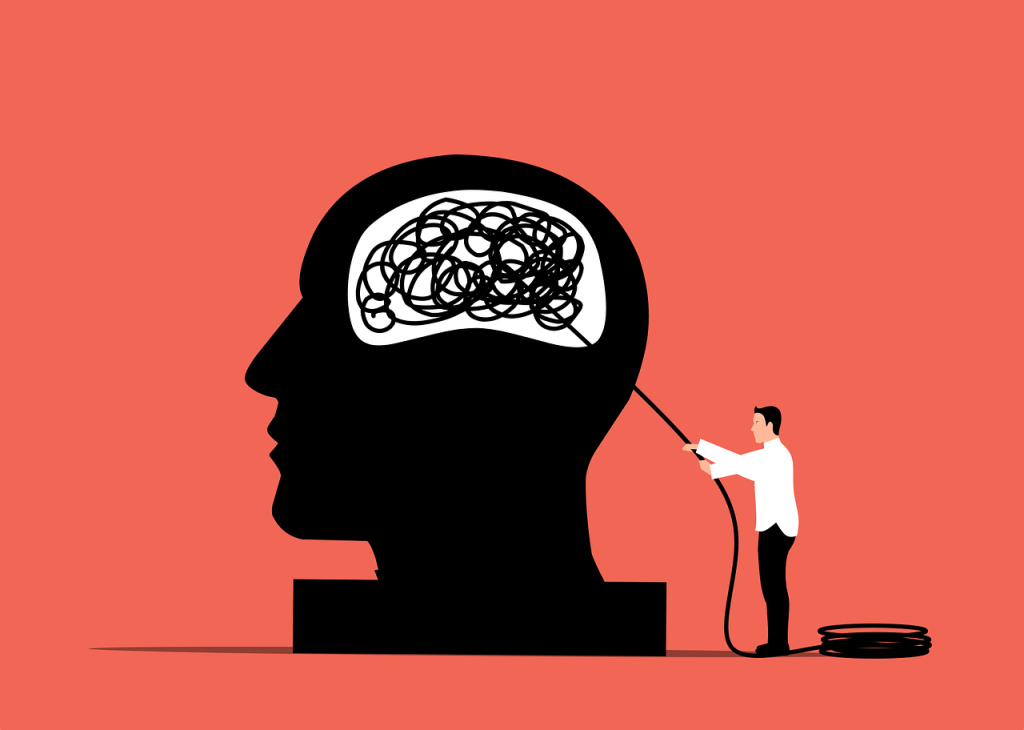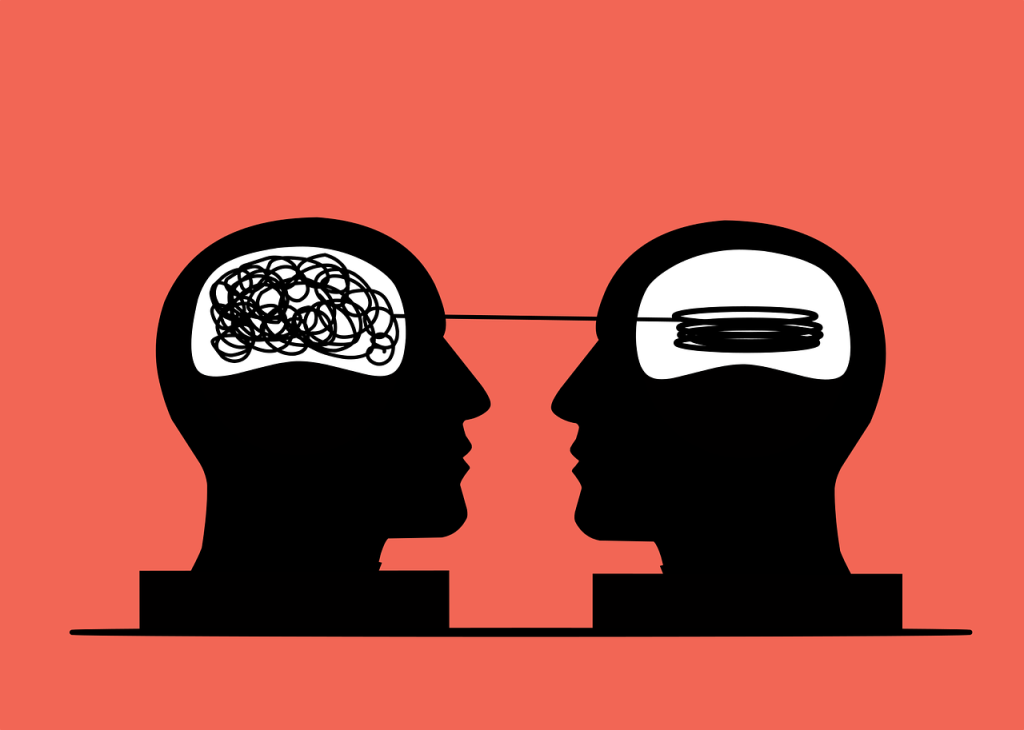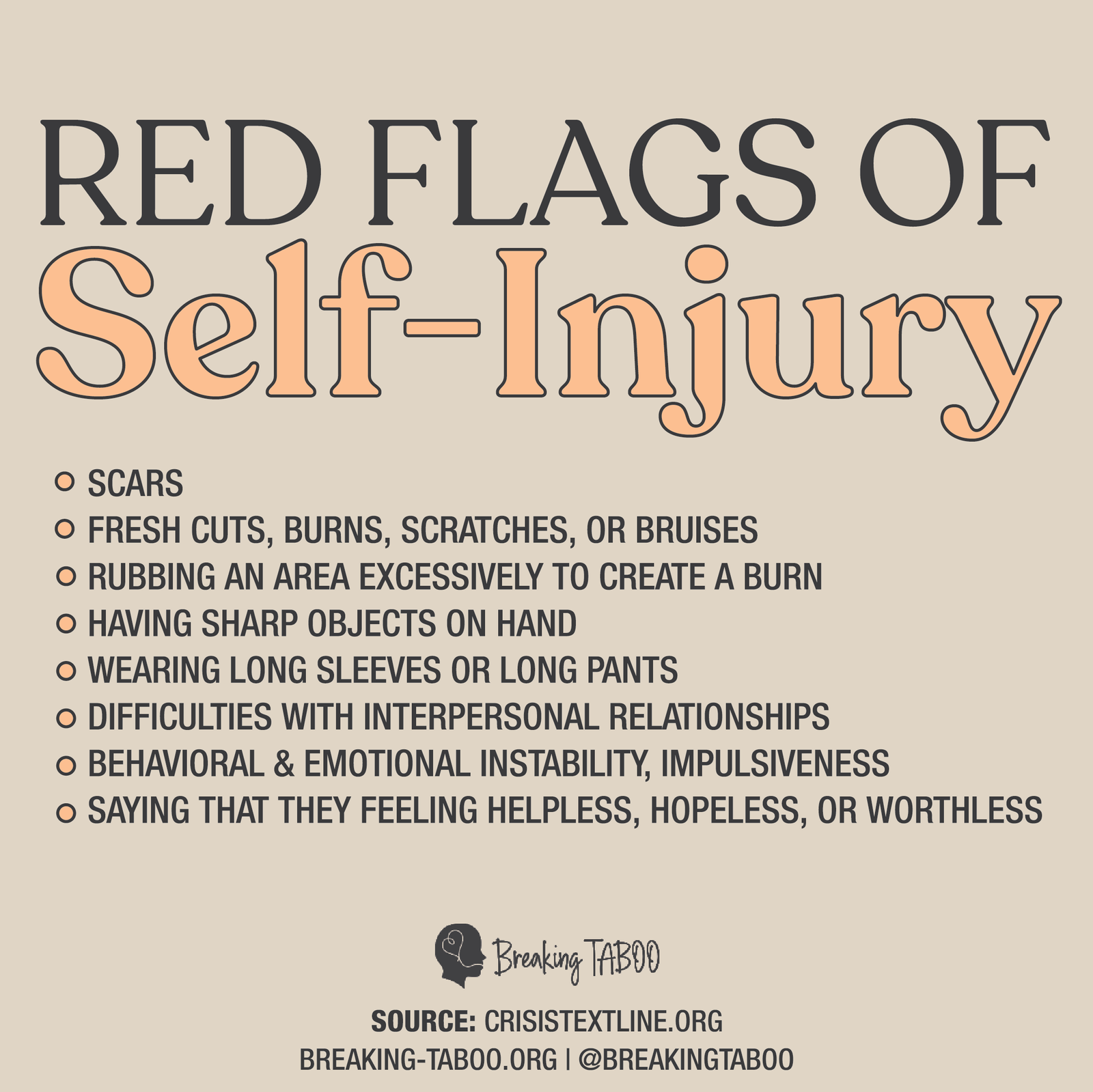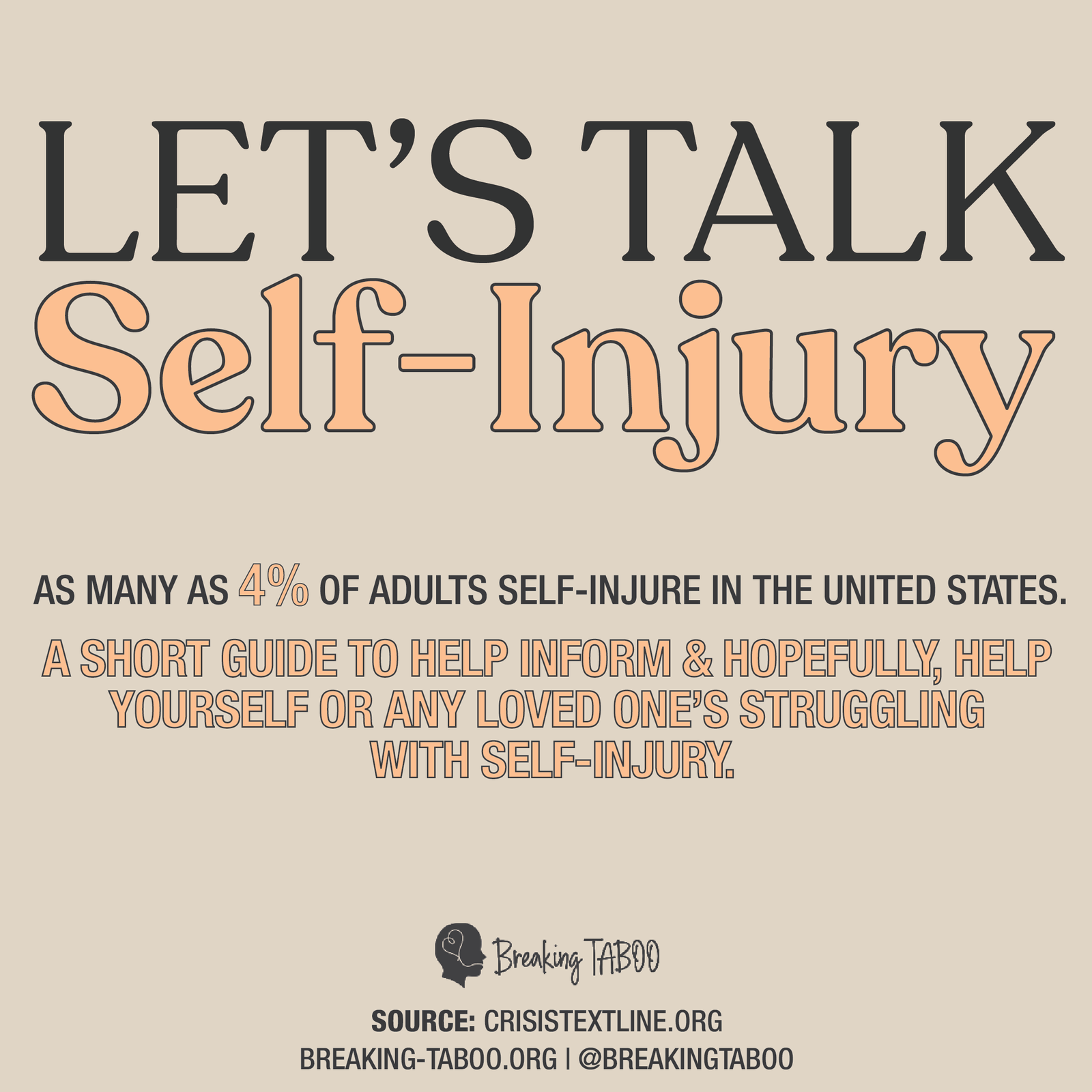May is Mental Health Awareness Month. Which means that there is a lot of extra focus on mental health, mental illness, and breaking the stigma surrounding these two very important topics. We use that word a lot- “awareness”, but so many people don’t fully understand what awareness entails. Awareness goes well beyond the concept of mere acknowledgement that something exists. It is a highly complex and layered system of introspection and extrospection. It is the magnitude and depth by which we are capable of viewing ourselves and our environment across multiple dimensions of our existence. That said, it is also a view through the lens of objectivity. This is why awareness is such a difficult concept for so many to even begin to master. Humans are intrinsically emotion-based creatures, and to reduce or diminish their effects on our thought processes is counter to our nature. However, our brains did not evolve to use one method of viewing and analyzing the world. Logic and objectivity are meant to coexist with our emotions. How we view, assess, and act, both on ourselves and within our environment, should be logically informed by our emotions, but not dictated by our emotions. When we act with too much objectivity we come off as cold, robotic, and inhuman; however, when we act with too much emotion we become impulsive, indecisive, and reckless. The key to awareness doesn’t lie in one or the other; rather, it lies in the symbiotic dynamic that exists when objectivity and emotion are used together to inform each other. (Armstrong, 1979)
Extrospective Awareness
The amount of information that we are capable of taking in and absorbing is vastly increased when we choose to develop and cultivate our awareness, but like any skill this requires patience, discipline, and time. Environmental or extrospective awareness is arguably much easier to master than its antithetical counterpart, introspective awareness. It is vastly more difficult to remain objective when the subject of analysis and critique is yourself. Extrospective awareness, when broken down really consists of three main concepts: interpersonal awareness, circumstantial awareness, and task specific awareness.
Interpersonal awareness relates to how we engage with others and is mostly dictated by our own capacity for compassion and empathy. These two concepts allow us to connect with other people with greater depth and understanding. This type of connection benefits all parties because it grants us greater patience, and a real understanding of why a person is behaving in a certain way. This does not mean that we allow ourselves to become a punching bag and accept disrespect; however, it does arm us with a line of communication where we may mutually respect each other’s boundaries without unnecessary conflict or argumentative behavior (Armstrong, 1979).
Circumstantial awareness pertains to our ability to comprehend and engage within the scope of our everyday lives. Having a comprehensive understanding of our circumstances is what enables us to enact change when necessary. Inevitably, we will encounter periods of our life when movement becomes stagnant, or an environment becomes toxic. It is our responsibility to ourselves to be aware of these types of situations and act accordingly, lest we become comfortable, complacent, or traumatized.
This is a prime example of how our emotions inform our logic. Discomfort, pain, or suffering causes an emotional response, and we can choose to act in one of two ways. The first way is based on emotion alone; this is where we act on impulse and the outcome has a higher potential of being more undesirable than the original set of circumstances. The second way is via logic informed by emotion. Our emotion tells us that we need to make a change, but our logic also tells us that we need to devise a plan to intelligently enact that change. This may not be as immediate, but the results tend to be much more desirable, long-term, and sustainable. (Armstrong, 1979)
Task specific awareness is being present and aware in the moment. How many times have you completed numerous tasks and not known how you got from A to B? While some of this is attributed to habit, many times we simply aren’t present or aware in the moment. This type of awareness is important because it allows us to pick up on the subtle nuances and complexities that exist moment to moment. Cultivating this type of awareness actually does much to reinforce both our short and long-term memory. When we are aware and present in the moment, our brains are capable of more efficient information gathering and as such also creates more consistent and stable memories to recall later. Many of us have experienced whole days or longer that are a complete blur because we are living on autopilot. We miss out on a lot of opportunity, engagement, and connection when we live this way, and so, cultivating this type of awareness is important as it has a cascading effect that permeates the myriad facets of our lives, including introspective awareness.
Introspective Awareness
Introspective awareness can also be summed up with another phraseology that has been a hot button topic recently: emotional intelligence. Emotional intelligence is a level of awareness that permeates numerous dimensions of who we are. There are four primary facets of emotional intelligence that fully comprise introspective awareness:
- Self-Awareness
- Self-Management
- Social Awareness, and
- Relationship Management
Each of these areas should be understood and addressed in order to achieve a full comprehension of introspective awareness. Many are familiar with self-awareness, and perhaps possess a modicum of it, but the other three facets of emotional intelligence often go misunderstood or overlooked, and therefore underutilized. (Arnsten, 2010)
Self-Awareness
Your self-awareness pervades every dimension of your life. Self-awareness is what gives us the ability to understand ourselves and actively observe our strengths, weaknesses, and areas of opportunity for growth and development. Importantly, it is also the function that delivers an objective perspective of our own emotions, and how we engage with our emotions in the midst of our relationships and life circumstances. The chances are high that your self-awareness isn’t as developed as you may think. This isn’t a personal attack, quite the opposite; I am simply pointing out an area of necessary growth that will serve you drastically, in both your quest for greater awareness and as it relates to the entirety of your life.
Your self-awareness, as you develop it, will give you cues as to when you are beginning to slip into a state of impatience, complacency, and stagnancy. These concepts exist within the hind brain and are impulse-based mechanisms, while patience, empathy, and logical action are fore brained mechanisms of critical thinking and analysis. What self-awareness does is allows us to reel ourselves back into the present moment and critically analyze our emotions. We may then be able to surmise why our hind brain response is being triggered, and act counter to it to reinstate fore brain activity. By no means is this an instantaneous process; it takes work, effort, and practice. Self-awareness is a skill, just like playing a sport, or learning to draw; chances are you’re not going to be great at it at first. That is what mastery is however, being bad at something a few thousand times until we finally become good. Self-awareness, once grasped and coupled with control of one’s thoughts, leads us to self-management (Landry, 2019).
Self-Management
Arguably, everything we have talked about is a form of self-management. Now, we are zooming in even further on the function of self-management as it relates to our thoughts and emotions. We have to be able to manage our emotions in stressful and challenging situations; this pertains to our personal and our professional lives. The expression “sound minds prevail” could not be more appropriate in this context.
Emotions cause us to react, and in some of us they cause us to overreact. In certain contexts and circumstances this can be a very serious problem. I have known people who have let their emotions get the better of them, and the resulting aftermath usually consists of a lost job, or a seriously damaged relationship. We live in a world where we cannot afford to throw emotion fueled tantrums; they don’t serve to achieve anything, and they tend to do wide spread damage to our reputation, which is much easier to accomplish with the advent of social media and smartphones.
Self-management and self-awareness aren’t to be confused with emotional repression. It is easy to view these mechanisms as stifling or repressive, but they are actually liberators of our emotions. They grant us the ability to wield our emotions with an understanding of their origins and purpose, rather than be controlled by them and afflict them onto others. When we can learn self-management, we can also learn to actively respond rather than react. When we respond, it is because we have objectively and logically analyzed the situation, and our response has been informed by our emotions, but not dictated by our emotions.
A simple technique to engage in self-management is to practice “the pause.” When we actively use our self-awareness to pause, we give our fore brain a chance to “catch up” with our emotions. This is immensely powerful because it prevents our emotions from overriding our logic center and plunging us head first into an emotionally charged blunder. When we can remain in our logic and objectivity we are greatly more perceptive, analytical, and empathetic. This is because we are not operating from a perspective of selfish emotion or ego, and as such we are granted a significantly greater capacity to connect emotionally and see opposing perspectives with clarity. These abilities, and their development, are prudent and necessary as they relate to social awareness (Landry, 2019).
Social Awareness
By first gaining awareness and control from within, we may then simultaneously shift our attention, and gain awareness of the emotions and inner workings of others. Everything we do starts internally. We should first change and regulate our internal environment if we ever desire to change our external circumstances. This is what controlling our thoughts, self-awareness, and self-management allow us to accomplish; they give us the necessary tools to become the willful moderators of our own internal climate. You can’t control the weather outside, but you can control the thermostat within your own home.
Social Awareness is external awareness informed by internal awareness; more specifically, it is interpersonal awareness. Yes the same interpersonal awareness I mentioned earlier. I am mentioning it again here to highlight the importance of this type of awareness, but also to direct your attention to the interconnected nature of internal and external awareness. An important part of emotional intelligence is empathetically being able to read other people, and subsequently discern social dynamics at play. Many of us have experienced “that person” at a social gathering. They have a knack for insensitivity and say the most inappropriate thing at the worst time; or they have the magical ability to bring any conversation to a screeching halt.
Many write this off as being socially awkward, and in some instances it certainly is, but for the most part these are people that lack development in the area of social awareness. Rather than read the room or the tone of conversation, these “social-disruptors” operate on their own wavelength and tend to blurt out whatever comes to mind- awkwardness be damned. Antithetically, exercising empathy and social connection aids us in creating an environment where we can better understand each other. This is not some quasi-attempt at being “woke” or “politically correct.” It is a very real and necessary skill, especially as it pertains to patience and empathy. When we can begin to understand a person, their emotions, their experiences, and a semblance of why they act a certain way, we are able to give them a greater capacity for patience and compassion.

Empathy humanizes the other person, instead of defining them by whatever challenging trait they may be unwittingly inflicting upon others. The unfortunate truth is that people can be annoying. There’s no two ways about it, but that “annoying” behavior stems from somewhere. It originates from insecurity, trauma, or perhaps a simple lack of their own social or self-awareness. In any case, a little empathy goes a long way in bridging the gap between an annoying object of contemptibility, to a human with flaws and the same right to patience, empathy, and compassion as you or me (Landry, 2019).
Relationship Management
At the root of the term relationship management, are the words ‘relationship’ and ‘management’. A relationship implies some sort of connection that stems from a personal or professional capacity. A relationship also implies that this is a person you regularly see, interact with, communicate with, and engage in challenges with. I purposely keep this definition relatively vague and consisting of core components, because based on the type of relationship, there will obviously be differences, both subtle and drastic in nature. A meaningful, romantic relationship will carry much more weight and nuance than a platonic, professional relationship, though professional relationships carry their own set of challenges and “politics”.
Management implies that we are actively engaged in the operation and functionality of the relationship. Bad management, just like at a job, usually leads to people leaving the relationship. If we poorly manage our relationships, chances are they won’t last very long. When we fail to communicate, fail to listen, and fail to effectively resolve conflicts that occur within the relationship, that is when the relationship is destined to fail as a result. A relationship may end in a number of ways, whether that is quitting a job, being fired, ending a relationship, or being broken up with. The only difference is who initiates the ending. It is important for me to state that relationships are recoverable, but it requires the use of self-awareness. Being able to discern when we, or the other party, are coming up short, and maintaining the capacity to address the shortcoming, is how we prevent relationships from disintegrating. Relationship management requires the use of all facets of emotional intelligence, and all of these components of emotional intelligence work synergistically; that is, they work for each other, and work better when used together.
Relationship management utilizes the other aspects of emotional intelligence to enhance our patience. Self-awareness grants us the capacity to understand when and why we are feeling impatient, as it pertains to our relationship, while self-management prevents us from having an outburst or becoming too reactionary. We use self-management to regulate our emotions, pause, and act logically rather than on impulse alone. Finally, social awareness imparts empathy and compassion for the other party, rather than immediately jumping down their throat. Instead, we take the time to listen, understand, value their thoughts and feelings, and prevent ourselves from assuming what they are thinking and feeling, which would most likely be incorrect anyway.
The real application of patience and empathy with regards to relationship management comes in the form of conflict resolution. When conflict arises, the chances are high that our fight or flight response will be triggered to some degree. Our primordial hind brain is already doing its maladapted job of preparing us to do battle. If we allow this impulsive approach to take control, emotions will inevitably run high, and conflict will escalate until a resolution is found. Usually the said resolution is not one that will be desirable or beneficial to any party involved, and the cycle of conflict will continue.
However, if we take even just a few moments to bring ourselves back into our objectivity and logic, we can not only prevent escalation, but actually de-escalate the situation entirely. The best way to do this is engage in calm, collected, and empathetic conversation with the other person or people. But first, we have to ensure that the other party or parties are in the same state of mind that we are. If one person is calm and the others are still in a heightened emotional state, we can communicate until we are blue in the face, but it will fall on deaf ears. They will be too wrapped up in their own emotions, and every word will either be misconstrued, or taken as a personal attack.
Cue escalation! How then, do we get them to listen? In some instances, you won’t, at least not in that moment. Sometimes there is something to be said for delaying a conversation for several hours, or even a day or two to allow emotions to settle. This depends on the circumstances, and what degree of conflict you are facing. Something minor like a broken vase or losing someone’s stapler won’t require nearly as much, or any, delay compared to a conversation that surrounds a much larger conflict. Larger conflicts, such as someone taking credit for your work, or a financial dispute at home, may require a day or two before a resolution can even begin to be discussed. Letting our emotions control the flow of events and conversations, in this respect, isn’t conflict resolution it is conflict reinforcement (Landry, 2019).
In order to get someone to listen, we need to use our awareness and emotional intelligence to tap into their awareness and emotional intelligence. Usually, if we point out to the other person how they are behaving, in a clear and relatively delicate fashion, then we can typically bring them back to objectivity and reality. We in essence, get them to “practice the pause” and bring them back into their fore brain of logic and objectivity. Even if emotions remain high, this gives us the opportunity to postpone conflict, and resume conversation at a later time when everyone has had a chance to “cool off.”
Being able to effectively perform this type of function can save relationships. That which is said or done cannot be unsaid or undone, and operating from a place of heightened emotion, especially anger, can lead to some pretty hurtful words and actions. Anger may lead to things that we wouldn’t ordinarily say or do, but because we were triggered and in survival mode, all bets were off. In these moments, we lacked synergy of our emotional intelligence.

Synergy
In the previous section, I mentioned synergy; that each aspect of emotional intelligence works for the other, and they enhance each other. None of the functions described are mutually exclusive. Our values, our environment, to what extent we allow ourselves to live in the present, and how we manage our thoughts and emotions, internally and as they relate to others, are all interconnected and comprise one whole. They act symbiotically, and when harnessed properly, they have immense power to galvanize a person into action, not only in their pursuit of awareness, patience, and empathy, but more profoundly, in pursuit of becoming a better version of self.
We are not at our best, or even capable of our best, when we are divided, chaotic, and incoherent. In this respect, incoherence does not relate to your speech or your writing ability, this has to do with internal inconsistencies and being illogical. When we are asynchronous, impulse and instinct are our default motivators that propel us through life.
At this point, I think you may surmise that living asynchronously doesn’t lead to anything of value, purpose, meaning, or enrichment. Auto-pilot is a pretty dismal and unfulfilling way to live.
What are we actually doing when we achieve synergy and awareness? We are forced to look at every dimension of who we are, and what our life entails. We are forced to ask the questions, “Who do we want to be?” and “What do we want our life to mean?” Synergy and awareness ask us to willfully confront the dysfunctions and inadequacies that are a part of who we are, and take active steps to eliminate or diminish them. We are taking full responsibility for who we are, how we behave, and how we interact with others and our environment. We go from being the hapless victims of circumstance, other people, and our lives, to the willful architects and engineers of every dynamic and dimension in our lives. The process of truly developing awareness, in a meaningful and lasting way, requires much greater acknowledgement and confrontation of why we are unaware, and why we behave in certain ways. The more you apply yourself to these lessons and concepts, and really lean into the uncomfortable notion that you are your greatest obstacle, the more aware you will become, and you will be embracing the process of operating with synergy, coherence, and at your best. In honor of May being Mental Health Awareness Month, I challenge you to analyze your own awareness and apply what resonates with you from this article to your own life.
~Aaron Weiner

Aaron is a research based article writer for Breaking Taboo. He is a proponent and advocate of mental health and wellness, and he specializes in men’s mental health, psychology, and advocacy. Aaron’s writing consists predominantly of philosophy, psychology, mental health, and self-help works. He is currently working on a number of psychology based self-help books that will be published later this year. His passion for helping others, and his immense desire to effect greater change in the world at large ring loudly from all of his work. In his spare time, Aaron is also avidly into fitness. He competes in a number of athletic competitions including Warrior Dashes, Tough Mudders, and is an accomplished natural bodybuilder.
Arnsten, A. F. (2010, July 20). Stress signalling pathways that impair prefrontal cortex structure and function. National Library of Medicine. Retrieved May 18, 2023, from https://www.ncbi.nlm.nih.gov/pmc/articles/PMC2907136/
Armstrong DM. Three types of consciousness. Ciba Found Symp. 1979;(69):235-53. doi: 10.1002/9780470720523.ch13. PMID: 261648.
Landry, L. (2019, April 3). WHY EMOTIONAL INTELLIGENCE IS IMPORTANT IN LEADERSHIP. Business Insights. Retrieved May 18, 2023, from https://www.ncbi.nlm.nih.gov/pmc/articles/PMC2907136/



